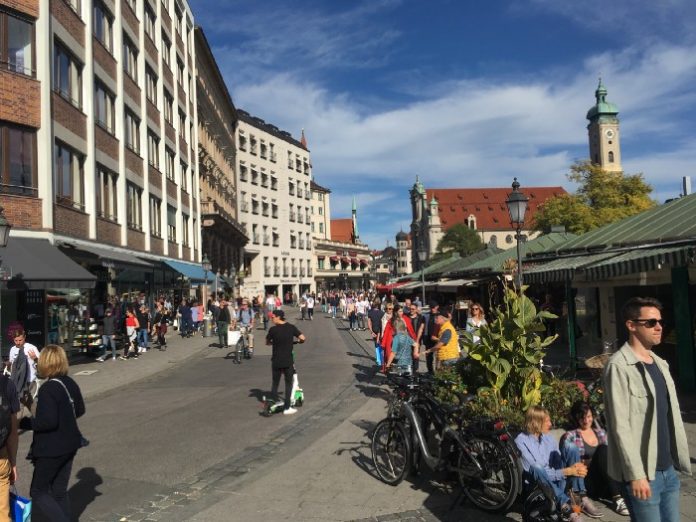
For the last few years, and in the run up to the November election, American cities led by Democratic councils and mayors have seen an increase in claims they are “too far left”–as if there was either something wrong with that (nope), or that it was unique in either the past (nope), or the present, globally (again, nope). For much of the last half century, left-leaning leadership in cities has been the norm–especially throughout Western Europe. The run up of the industrial revolution through WWI was also a flashpoint for left-wing local governance. It’s also worth noting that many of the cities routinely rated the most livable, have been run by center-left and left-wing parties for decades.
My own experience with municipal politics and policies was largely agnostic until I moved to “the green city” of Freiburg. When I lived there, Dieter Solomon from B’90/Die Grünen (the German Green Party) was the mayor. The city council was also largely dominated by the green party, and routinely pushed progressive policies. New development in the city is oriented around affordable housing, green mobility/living without cars, access to open space, and low-energy buildings. It is easily the most livable city I’ve ever resided in, and the policies there definitely influenced my outlook on politics and architecture. I wouldn’t be discussing livable cities, Passivhaus, and Mass Timber to the degree I have, without those fortunate experiences.
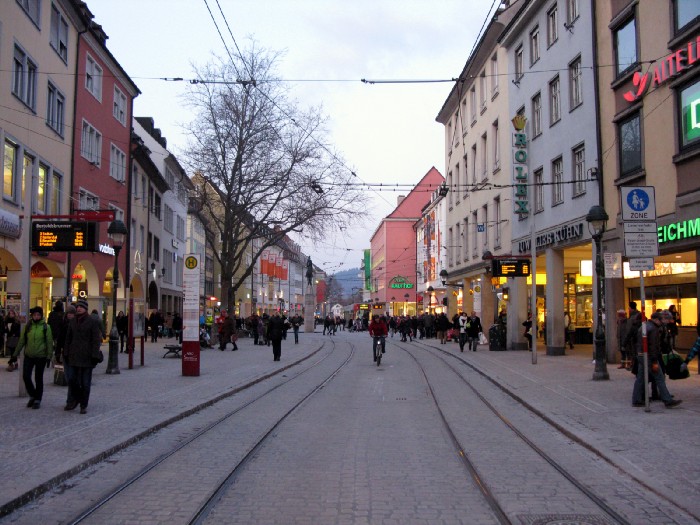
The United States also has a history with left-leaning urban policies and leaders–including stints of “Sewer Socialism,” as well as Municipal Socialism. The latter has played a fairly central role in Seattle politics for a century–despite not really having a single elected socialist until recently.
Our electricity is supplied by Seattle City Light, formed as a public utility in 1905. In 1890, Seattle residents voted to purchase their own water system–and its successor, Seattle Public Utilities, manages our water supply and garbage. There has also been a large push for Municipal Broadband–given Covid-19 and work from home protocols becoming more mainstream, I’m sure a lot of residents and students would be better off had that been adopted–hopefully soon! Unfortunately, our private streetcar systems were never bought by the city. Mobility has been severely hampered for generations, and we don’t have the roots to build a modern system off of, as several European cities have done.
So with all the consternation and propaganda (and let’s be honest, it is all propaganda) regarding how far left cities in the U.S. have supposedly swung, I realized there isn’t a sense of how our cities currently compare to those in other countries, or even historically. So I gathered what I know about German, Swiss, and Austrian urban politics, and checked in with a few friends to get a little more background on others. What follows is a super incomplete and abbreviated list of cities that, unlike literally anywhere in America, actually are run by center-left and left-wing parties.
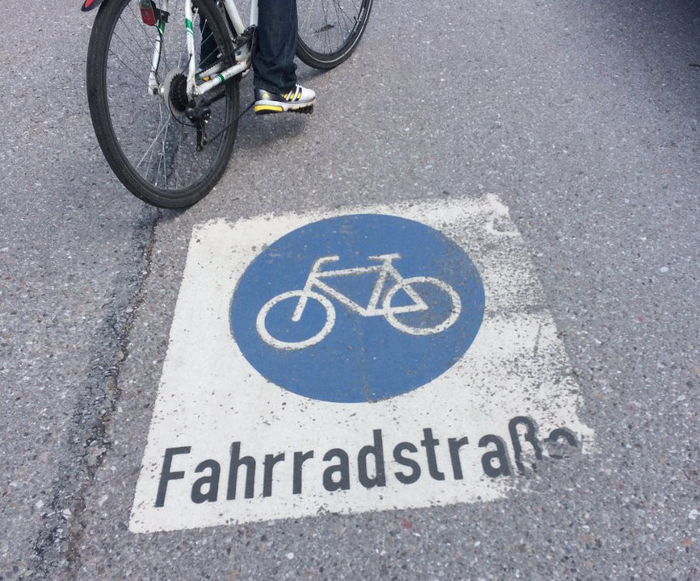
Vienna: Perhaps the most notable (or perhaps just the most important, in my view), is Vienna, having been led by the SPOe (the Social Democratic Party of Vienna) almost continuously since the election of Jakob Reumann in 1919. Reumann won on a platform of building up community through healthcare, strong municipal services, abundant municipal housing and other progressive policies. The Social Democratic Party was banned under the Austrofascists in 1934, as well as under the Nazis. However, since 1945, every mayor has been a member of the SPOe. Today, nearly two-thirds of the city live in social housing, and the city is routinely rated one of the most livable cities in the world. I’m sure there is no correlation.
Copenhagen: Every mayor since 1938 has been a member of the Socialdemokratiet –the social democratic party of Denmark. Is this, perhaps, the secret to Copenhagen’s cycling and livability successes?
Paris: Both mayors since 2001 have been members of the Parti Socialiste (PS)–the social democratic party of France. Francios Mitterand, President from 1981 to 1995, was also a member of PS, as are hundreds of mayors throughout France. The current mayor of Paris, Anne Hidalgo, is oft-referenced by our own mayor, who has yet to implement a single progressive policy as successfully as Hidalgo. Hidalgo recently ran, and won, on a massively progressive platform of municipal eco-socialism–increasing livability through smart urban policies, such as making the city much more bikeable, and being able to obtain everything one needs within 15 minutes of their home. In the same election, the French Green Party also saw large gains.
Brussels: Since 1983, all mayors save for one have been center-left or socialist. The current mayor, Philippe Close, is a member of the Parti Socialiste (PS)–the social democratic party of Belgium. The city is governed by both PS and the Belgian green party, who have been working on making a more livable city for years.
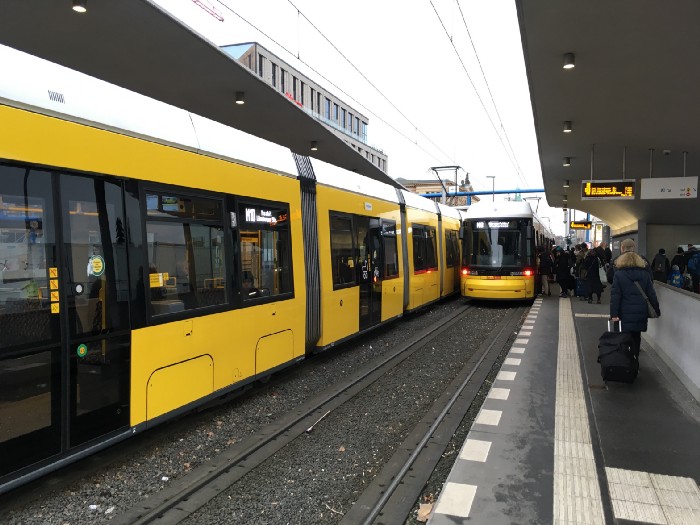
Berlin: Berlin’s history is unique given partitioning during cold war, and reunification. During partitioned Berlin, East Berlin’s mayors were all members of various socialist and social democratic parties. However, West Berlin’s mayors also largely hailed from the Sozialdemokratische Partei Deutschlands (SPD)–the social democratic party of Germany–holding the mayor’s office for 32 of 42 years during partitioned Berlin. Post-reunification, the mayor has been a member of SPD for the last 20 years. The council as well is largely dominated by left parties, including B’90/Die Grünen, SPD, and die Linke.
Amsterdam: Since 1957, the mayor’s office has largely been held by members of Partij van de Arbeid (PvdA)–the social democratic party of the Netherlands. The longest-serving conservative mayor was a little over seven months. The current mayor of Amsterdam is a member of Groenlinks, a socialist-leaning green party. Like Copenhagen, the city is incredibly bikeable, walkable, and has a high quality of life.
Oslo: Oslo’s mayors have oscillated largely between the Norwegian Labour and conservative parties. The current Mayor, Marianne Borgen, is a member of Sosialistisk Venstreparti (SV), the democratic socialist party in Norway. However, even Oslo’s recent conservative mayors have been socially liberal, seemingly more than most American Democratic mayors, pushing very progressive policies on removing cars from the city and building up a safe bike network.
Barcelona: Nearly all of the mayors elected post-Franco have been members of the Partit dels Socialistes de Catalunya (PSC),the Socialist Party of Catalonia. Barcelona’s current mayor, Ada Colau, heads Barcelona en Comú, a coalition from the merger of several grassroots organizations focusing on anti-austerity, eco-socialism, and green policies. Colau has also pushed for policies to make the city more affordable and livable, as well as pushing ahead on climate action.
Munich: Munich’s mayors have all been members of SPD since 1948, save for a six-year stint with the conservative CSU (it should be noted that the CSU, the party led by Angele Merkel, is significantly more liberal than the American Republican Party). The Stadtrat (city council) has also been dominated by SPD for decades, and now has left-wing and center-left parties (SPD, B90/Die Grünen, and die Linke) holding 47 of 80 seats. Unsurprisingly, the city has spent years developing car-light ecodistricts, removing cars from the city to expand the stunningly massive pedestrian zone, and increasing the biking network. It is definitely one of my favorite cities, and I enjoyed living a short train ride away.
Lisbon: Since 1977, every mayor has been a member of Partido Social Democrata (PSD), the social democratic party, or Partido Socialista (PS), the socialist party. The current mayor, Fernando Medina, is a member of PS.
Zurich: Since 1928, The mayor’s office and the council have been dominated by centre-left and left-wing parties, largely the Social Democratic Party of Switzerland, and the Swiss Socialist Party (SP). Ninety percent of the Stadtrat is composed of left-leaning parties, and the Gemeinderat is also largely composed of left-leaning green and social democratic parties. Current Mayor Corine Mauch is a member of SP and has been in office since 2009. Zurich, like Vienna, is also a routine contender for most livable city with incredibly progressive and green housing policies, strong transit, amazing parking policies (a parking cap!), and an ever growing pedestrian zone.
Other major cities with left-wing or center-left mayors/councils include:
- London — Mayor Sadiq Khan (Labour Party);
- Rotterdam — Mayor Ahmed Aboutaleb (PvdA);
- Utrecht – Mayor Peter den Oudsten (PvdA) ;
- Bucharest — Gabriel Firea (Social Democratic party);
- Reykjavik — Dagur Eggertsson (Social Democratic Alliance);
- Bern — Alec von Graffenried (Green Party of Switzerland);
- Basel — Council dominated by the Socialist and Green Parties of Switzerland;
- 63% of German cities over 100k have SPD or B’90/die Gruene mayors; and
- In addition, (literally) thousands of other cities.
It isn’t a secret that I believe many of these cities are doing amazing things around climate action, affordable housing, safe streets, and livability–all while our own cities are doing very little (and our present mayor does virtually nothing–especially on climate). In part, this is due to European Union and federal mandates. It also doesn’t hurt that few of these cities faced the decades of State and Federal neglect and disinvestment, as American cities have. And as much as I am a fan of the German SPD and die Gruenen, there is little room for parties like these in the two-party system we have found ourselves with.
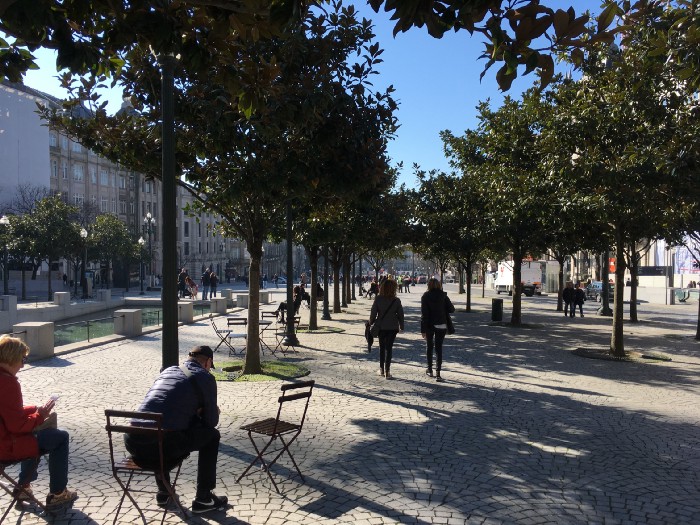
Nearly every one of the cities listed above has, and have had, far more left-wing electeds than any major American city. They are passing and promoting policies that uplift community, and the well-being of its citizens–along with the planet. Their policies are proving quite popular, and mayors and councilpersons are finding success in leading on ecological measures. Another commonality among these cities? Virtually none of them have single-family zoning, and most are built up to the point nearly everything one needs can be visited or obtained by walking, biking, or frequent transit.
Perhaps it’s not that American councils and mayors have shifted too far left, but rather, as the right has swung further and further out of political balance, they have not shifted left enough. Democratic mayors in big cities tend to hail from the corporate wing of the Democratic Party, getting in to office by defeating much more progressive challengers–as was the case in Seattle. Often in these same cities, the mayoral position is just a stepping stone for higher office. These aren’t caretakers building up and empowering communities–but rather, annointed placeholders with little experience around livability and urban issues, leading to vision-less office holders playing power games for state or federal attention.
Democratic mayors that do run and win on a progressive platform, like New York City’s, are nowhere near as effective in enacting the progressive and dramatic changes as cities run by left-leaning municipal governments in Europe. This is a massive problem exacerbated by off-year municipal elections, as noted by Randy Shaw in Beyond Chron last year. These cities should be the greenest and most livable cities in the United States–but they’re held back by feckless politicians that are less progressive and less effective than Germany’s main conservative party. If we are going to Build Back Better–climate action, safe streets, massively reducing vehicle miles traveled, abundant social housing, dense walkable ecodistricts–all of these items will be critical for nurturing deep green and livable cities and towns. A Green New Deal? I don’t think it comes close. We are going to need to pair it with a Marshall Plan for American municipalities. Let’s go!
Mike is the founder of Larch Lab, an architecture and urbanism think and do tank focusing on prefabricated, decarbonized, climate-adaptive, low-energy urban buildings; sustainable mobility; livable ecodistricts. He is also a dad, writer, and researcher with a passion for passivhaus buildings, baugruppen, social housing, livable cities, and car-free streets. After living in Freiburg, Mike spent 15 years raising his family - nearly car-free, in Fremont. After a brief sojourn to study mass timber buildings in Bayern, he has returned to jumpstart a baugruppe movement and help build a more sustainable, equitable, and livable Seattle. Ohne autos.


